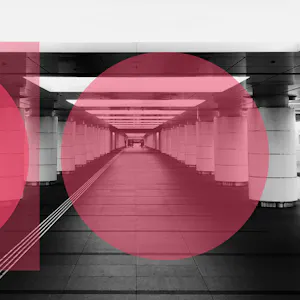Emerging threats

We support organisations striving to build a trustworthy, safe online environment where users can engage authentically in their communities.
Cross-sector corporatesWe support international government organisations and NGOs working to provide infrastructure or improve the capabilities, security and resilience of their nation.
International programmes and developmentWe support commercial organisations operating in a digital world, seeking to protect their reputation and prevent business disruption caused by cyber attacks and compliance breaches.
UK government and public sectorWe support UK government organisations responsible for safeguarding critical infrastructure, preserving public trust, and maintaining national security.



Over the past few months, I have been closely monitoring the Argentine elections. On Sunday, voters decidedly chose to elect radical libertarian and political outsider Javier Milei as Argentina’s thirteenth president since the country’s transition to democracy. Milei is a strong admirer of Donald Trump and Jair Bolsonaro, and has pledged to employ extreme neoliberal ‘shock-therapy’ policies to repair the country’s disastrous economy. His election campaign focused on attacking establishment politicians – what he refers to as ‘the caste’ – as well as using reactionary rhetoric, such as calling the Argentine Pope Francis a ‘filthy leftist’.
More dangerously, the president-elect has on multiple occasions diminished the crimes of Argentina’s brutal 1976-83 military dictatorship, questioning the reality of the country’s most raw political era. For example, during the first presidential debate he denied the widely accepted figure of los desaparecidos (the victims of the Junta), parroting rhetoric usually espoused by dictatorship apologists and conspiracy theorists, stating “there weren’t 30,000 desaparecidos, there were 8,753”. Additionally, his running mate, Victoria Villarruel, has advocated for a “complete memory” reframing of the period in order to portray the military junta as the victims of historical slander.
This playbook has been used by a number of ‘anti-establishment’ right-wing populist politicians across the world: Italian Prime Minister Georgia Meloni has openly defended neofascist movements apologetic of Mussolini; former Brazilian President Jair Bolsonaro frequently denied the murders of left-wing activists during the country’s 1964-85 military dictatorship; and in Indonesia, outgoing President Joko Widodo has backed his defence minister and former military general under the country’s Suharto-era dictatorship, Prabowo Subianto, in the upcoming presidential election. What unites these cases is their revision of history: weaponising the past to amplify social divisions and ultimately gain power.
What I love about history is that it is not factual. Instead, history is a practical tool used to substantiate a narrative, legitimise an ideology, and organise a collective. However, this interpretive aspect of history is also what makes it so politically dangerous. While I highly support historical debate and the questioning of the status quo, when these reinterpretations are presented as historical ‘truths’ they merely further polarise society. This ultimately plays into the hands of intentionally contrarian politicians.
It is a dynamic which thrives on social media at all levels on political, cultural, and social issues, with actors from across the political spectrum framing contentious points from ongoing historical debates as established fact. The internet’s algorithmic nature allows amateur commentators to portray complex issues and themes as black and white in pursuit of virality, tribalising digital spaces and creating echo chambers which stymie sensible discussion. As such, in this increasingly binary online world, the study of history has become more important than ever.
More about Protection Group International's Digital Investigations
Our Digital Investigations Analysts combine modern exploitative technology with deep human analytical expertise that covers the social media platforms themselves and the behaviours and the intents of those who use them. Our experienced analyst team have a deep understanding of how various threat groups use social media and follow a three-pronged approach focused on content, behaviour and infrastructure to assess and substantiate threat landscapes.
Disclaimer: Protection Group International does not endorse any of the linked content.

The UK Ministry of Defence (MoD) has introduced the new Defence Cyber Certification (DCC) scheme: a security framework for suppliers in the defence supply chain, designed to enhance overall resilience against cyber threat.

Social engineering attacks are on the rise and small and medium enterprises (SMEs) are especially vulnerable targets, often having more limited security resources and less mature defences that are easier to bypass.

Last week, the WeProtect Global Alliance launched their flagship biennial report, the Global Threat Assessment 2025 (GTA25).